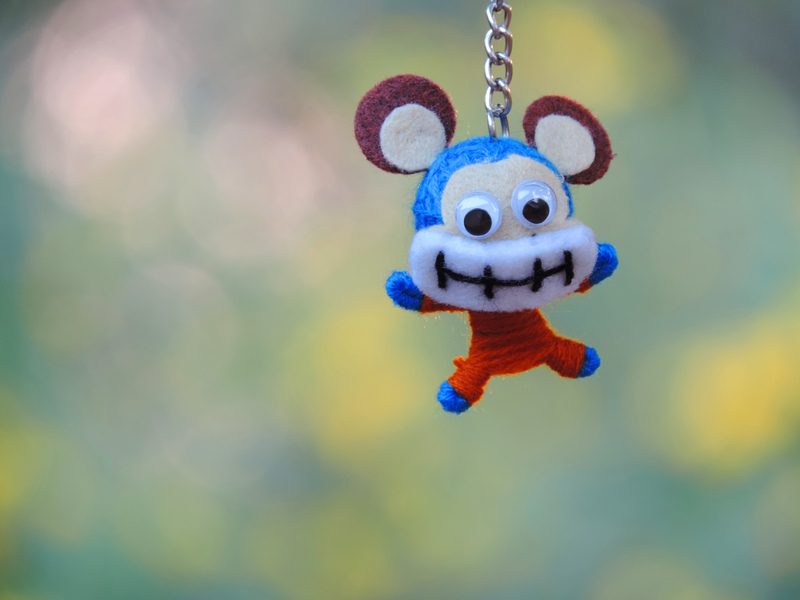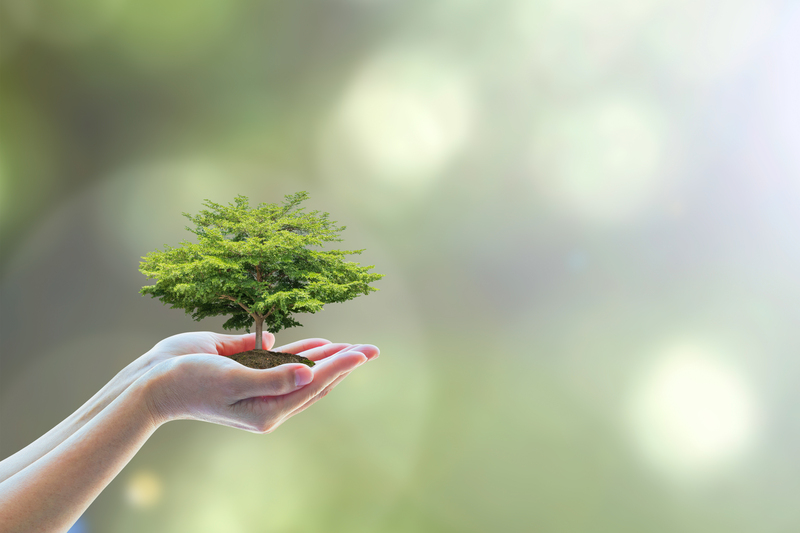Achieving Clarity Through Decluttering and Minimalism
Minimalism and decluttering have become buzzwords in recent years, but their significance extends far beyond mere trends or organizing fads. At their core, these lifestyle choices help us achieve clarity--mentally, emotionally, and even physically. By embracing minimalism and decluttering our lives, we open up more space for purpose, creativity, and focus on what truly matters. This guide will explore the profound benefits of simplifying your environment and offer actionable steps to transform your life.
What is Decluttering and Minimalism?
Before diving into the process, it's important to clarify these concepts. Decluttering refers to the act of removing unnecessary items from your surroundings. Minimalism, on the other hand, is a broader philosophy centered on intentionally living with less, focusing only on items, activities, and relationships that add value to your life. Both paths can intersect, with decluttering serving as a cornerstone for a minimalist lifestyle.
Key Differences Between Decluttering and Minimalism
- Decluttering: Often an event or ongoing process involving physical spaces, such as your home or office.
- Minimalism: A sustained mindset and way of life, extending into your choices in how you spend your time, energy, and resources.

The Benefits of Achieving Clarity Through Decluttering
Clarity is not just about the absence of clutter. It's about stripping life down to its essentials and, in doing so, uncovering what brings joy, meaning, and peace. Here's how decluttering and minimalist habits can provide clarity:
Mental and Emotional Wellbeing
- Reduces Anxiety: Clutter overloads the senses and heightens stress.
- Improved Focus: A tidy, calming environment enhances concentration.
- Less Decision Fatigue: Fewer possessions mean fewer daily decisions, freeing up mental energy.
Enhanced Productivity
- Organized Spaces: Efficiency increases when everything has a place.
- Minimized Distractions: Less visual noise means easier task prioritization.
Financial Advantages
- Mindful Spending: Buying with intention saves money.
- Less Maintenance: Fewer things require less upkeep and expenditure.
Improved Health & Relationships
- Better Sleep: Clean spaces contribute to better rest.
- Deeper Connections: Minimalism prioritizes people and experiences over possessions.
Steps for Achieving Clarity Through Minimalism and Decluttering
Ready to declutter your life and achieve new levels of clarity? Here's an actionable guide to get you started:
1. Define Your "Why"
Without a clear purpose, it's easy to get discouraged. Ask yourself: Why do you want to declutter? What do you hope to gain by living with less? Your answers may include more time, less stress, or a desire for beautiful, orderly surroundings.
2. Start Small: One Space at a Time
- Begin with a single drawer or surface. Completing small areas builds momentum.
- Set a timer for 15 or 30 minutes and see how much progress you can make.
3. Apply the Four-Box Method
Label boxes or bags "Keep," "Donate/Sell," "Trash/Recycle," and "Unsure." As you declutter, place each item accordingly. This method simplifies the decision-making process and prevents you from second-guessing your choices.
4. Let Go of Guilt and Attachments
We often hold onto objects out of guilt or attachment to the past. Remind yourself that letting go doesn't erase memories; instead, it creates room for new ones. Consider taking a photo before parting with sentimental items.
5. Organize What Remains
Arrange your remaining possessions so everything is visible, accessible, and has a designated spot. Use storage solutions that encourage order and make it easy to maintain cleanliness.
6. Adopt Mindful Shopping Habits
- Before buying, ask yourself: "Do I truly need this? Will it add long-term value?"
- Favor quality over quantity and adopt a "one in, one out" policy.
7. Declutter Digitally
Digital clutter--overloaded inboxes, desktop files, or unused apps--can contribute to mental noise. Regularly clean up your devices, organize digital files, and unsubscribe from unwanted emails.
Techniques for Long-Lasting Minimalism
Minimalism is not a one-time project but an ongoing practice. Consider these approaches to help sustain a minimalist, clutter-free environment:
The "KonMari" Method
Popularized by Marie Kondo, this approach encourages keeping only those items that "spark joy." Take each item in your hands, ask yourself if it contributes meaningfully to your life, and act accordingly.
The 90/90 Rule
If you haven't used an item in the past 90 days, and don't anticipate needing it in the next 90, consider letting it go. This guideline works well for clothing, kitchen gadgets, and media.
Capsule Wardrobes
Limit your clothing to a curated selection of versatile pieces that can be mixed and matched. This declutters your closet and makes choosing outfits quick and stress-free.
Practicing Gratitude
Minimalism is not about deprivation but about appreciating what you have. Mindful gratitude can further reduce the urge to accumulate more possessions.
Minimalism Beyond the Home - Decluttering Your Mind and Schedule
Physical clutter is only the beginning. Achieving true clarity requires taking a minimalist approach to your daily life and mental space as well.
Streamline Your Commitments
- Say "No" More Often: Limit social and work obligations to those that align with your goals and values.
- Protect Downtime: Avoid over-scheduling. Prioritize rest and activities that renew you.
Practice Mindfulness and Meditation
A minimalist mindset values presence. Incorporate daily mindfulness or meditation sessions, even just five minutes, to help calm your mind and banish "mental clutter."
The Role of Minimalism in Sustainable Living
Minimalism and decluttering also promote sustainability. Consuming less, reusing, and recycling helps reduce your ecological footprint. Donating unneeded items supports the circular economy and benefits your community.
Environmental and Social Benefits
- Less Waste: Fewer purchases lead to reduced landfill contributions.
- Conscious Choices: Minimalism encourages mindful, ethical consumption.
- Greater Community Impact: Donating or selling items extends their life and usefulness.
Why Achieving Clarity Through Decluttering and Minimalism Matters Today
In an era marked by relentless consumerism, digital overload, and fast-paced lifestyles, achieving clarity through decluttering and minimalism offers a welcome antidote. Returning to basics not only improves our personal well-being but also positively impacts our wallets and the world at large.
Thousands of success stories prove that the hardest step is often the first. Begin your journey today by clearing out one drawer, unsubscribing from three emails, or simply reflecting on what you want more--or less--of in life.

Frequently Asked Questions about Decluttering and Minimalist Living
- How often should I declutter?
There's no strict timeline. Some prefer daily habits (like 10-minute tidy-ups), while others do seasonal or annual overhauls. - Can you be a minimalist with a family?
Absolutely. Involve every member in the process, focusing on shared spaces and teaching children the value of intentional living. - What do I do with items I no longer need?
Donate, sell, recycle, or responsibly dispose as appropriate. Upcycling or gifting are also rewarding options. - Will minimalism make my home look empty?
Not at all. It will reflect your personality and priorities, accentuating the items you genuinely love and use. - How can I avoid recluttering?
Adopt mindful buying habits, regularly review possessions, and create systems that make it easy to maintain order.
Conclusion: Embrace Minimalism and Clarity--A Life Transformed
Achieving clarity through decluttering and minimalism is a journey toward freedom--freedom from excess, from stress, and from distractions. It's about making space for what truly matters, whether that means creativity, deeper relationships, improved health, or simply peace of mind. By taking intentional steps today, you can nurture a home, mind, and lifestyle infused with clarity, purpose, and calm.
Ready to take control of your environment and your mind? Start small, remain consistent, and watch as living with less leads to so much more: more clarity, more joy, and a renewed sense of self.
If you're passionate about living with intention and want lasting results, remember that minimalism and decluttering are not about deprivation, but about choosing abundance by focusing on what matters most.